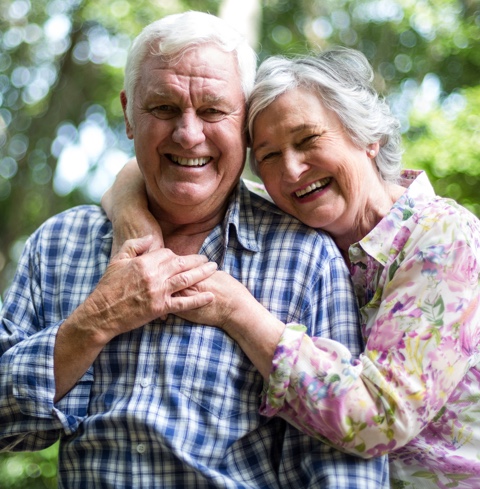If we are lucky, we will all eventually become seniors. Aging is just a part of life. Unfortunately, in our culture we often view aging through a negative lens and treat the oldest among us with less dignity and respect than they deserve. Sometimes, we assume they’re kind of dumb or treat them like children unable to think and fend for themselves. If you think about it, this is weird. When we’re children, teenagers, and young adults, we hear constantly that we just don’t know enough yet, that we don’t have the life experience and wisdom to make good choices or to do what we want to do. And then this all becomes true again, apparently, once we turn seventy or so. In this framing, everyone is almost always either too young or too old to know their own mind. This puts all of us in a bind for most of our lives.
Of course, we know that seniors certainly do have the wisdom and life experience to make their own decisions. And we always need to respect their choices. Sometimes, though, there’s a fine line between respecting someone’s choices and making sure they get the help they need. In a recent blog post on balancing combatting ageism with insuring seniors have appropriate resources, Robyn I. Stone of the LeadingAge Long-Term Services and Supports Center writes, “Our bodies and functional abilities do change after a certain age. That means we may require far different interventions to maintain our biological, psychological, and social well-being at age 80 than we did at age 21.”
Stone’s quote resonated with me because of a couple of interactions I’ve had recently with residents who are struggling with their increasingly limited physical abilities. As a professional in a senior-living community, it’s important to me to respect residents’ statements about what they want and need. But it’s also vital to make sure they’re safe. Sometimes, that means helping them, or finding someone trained to offer a particular kind of assistance (since I’m not clinical staff), even when they say they don’t want help. This can be hard. I’ve heard residents express embarrassment as well as frustration because they cannot safely do what they’re used to doing. Sometimes, they try to do it anyway.
At Immanuel, I think we’re very good at balancing insuring residents’ safety with respecting residents’ autonomy. How do we do this? Well, mostly it’s about compassion. If I’ve been talking with a resident who then needs help to stand even though she doesn’t want it, I need to find someone trained to help her safely. But I can also continue the conversation we were having about something else entirely. And I can listen when she wants to express frustration with her situation. That resident might have some physical difficulties, but she is so much more than the sum of her physical difficulties. My coworkers and I know that, and we know that sometimes it helps a lot just to acknowledge that the situation just stinks. Caregiving staff can kindly and matter-of-factly offer physical assistance (some of our CNAs are incredibly good at this!) and then residents can get on with their days.
Residents know very well that their bodies are not the same at 80 as they were at 21. There’s no need for us to tell them that. All we need to do is interact with them as individuals instead of numbers (ages). I think it also helps to remember that if we’re lucky, we’ll all be seniors someday. We surely want both autonomy and safety, and it is possible to have both.


